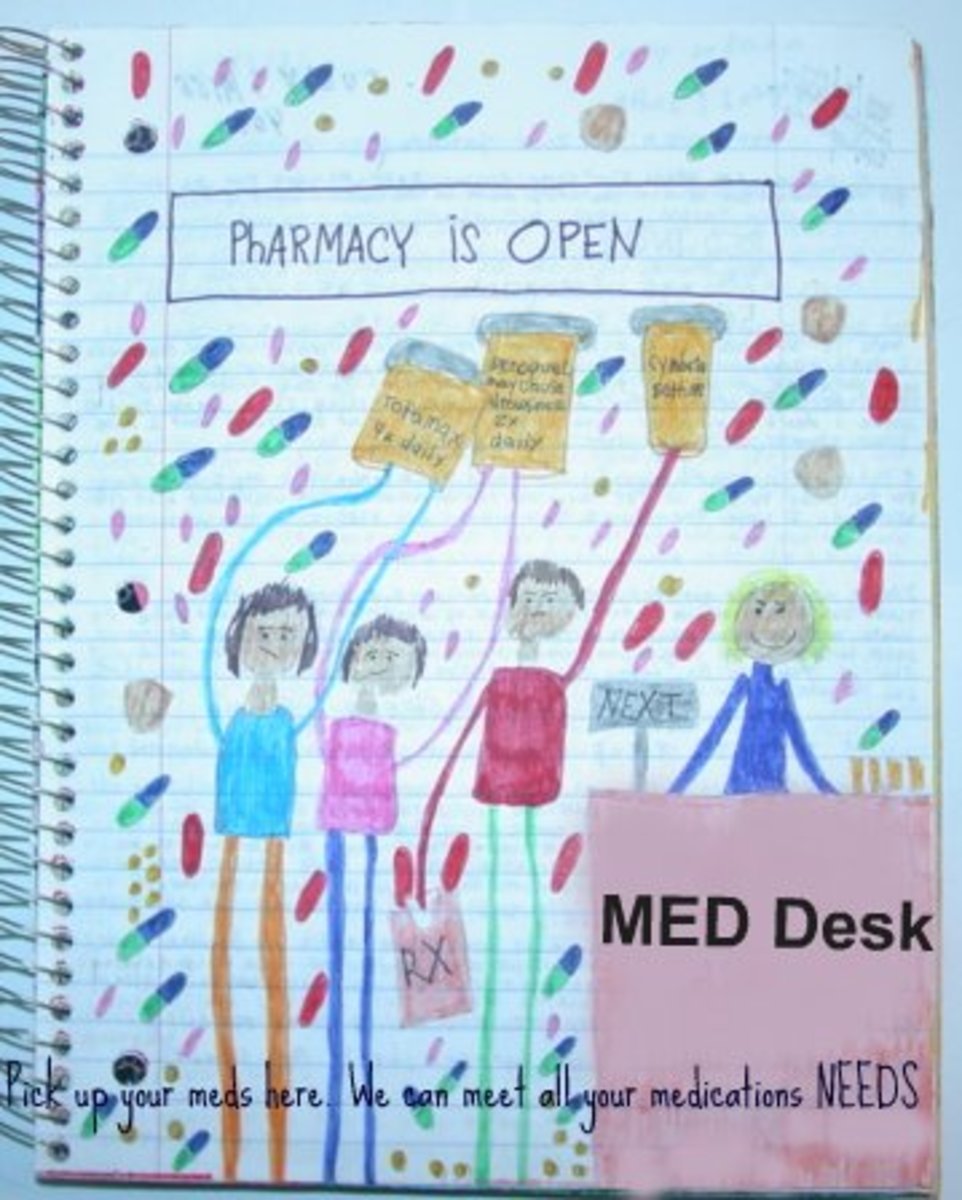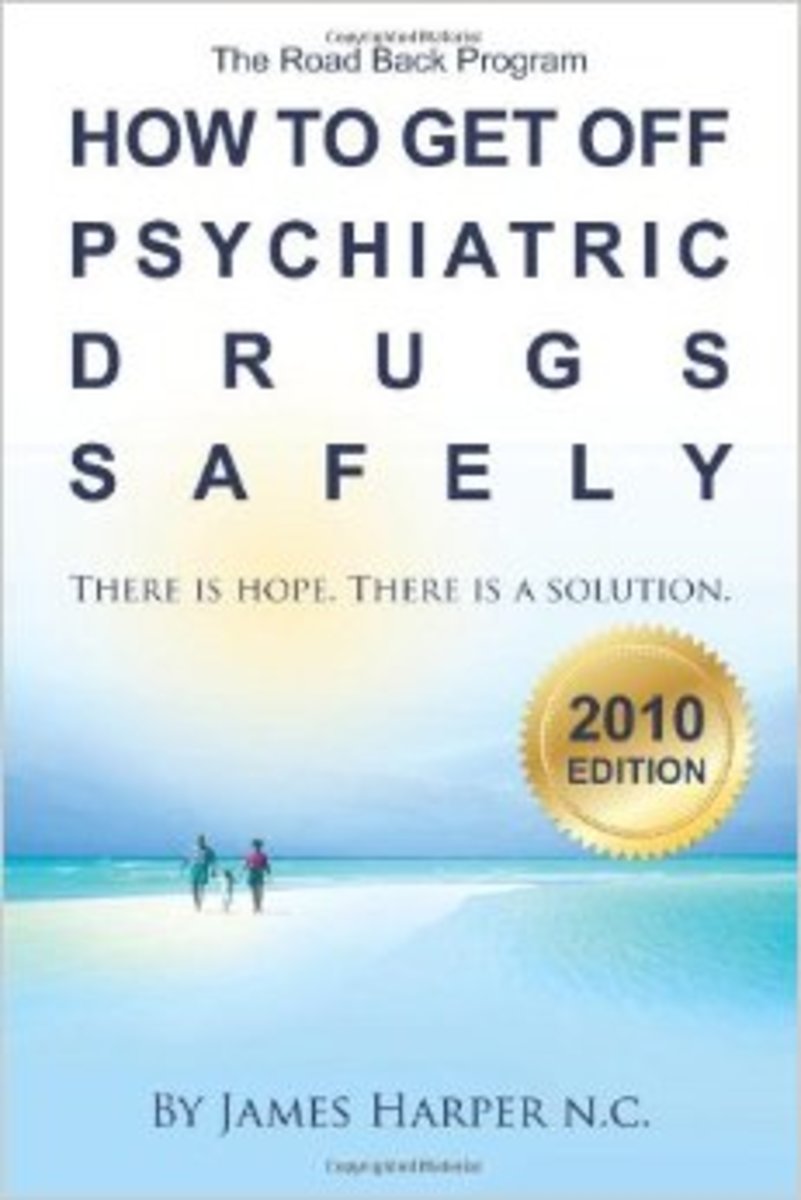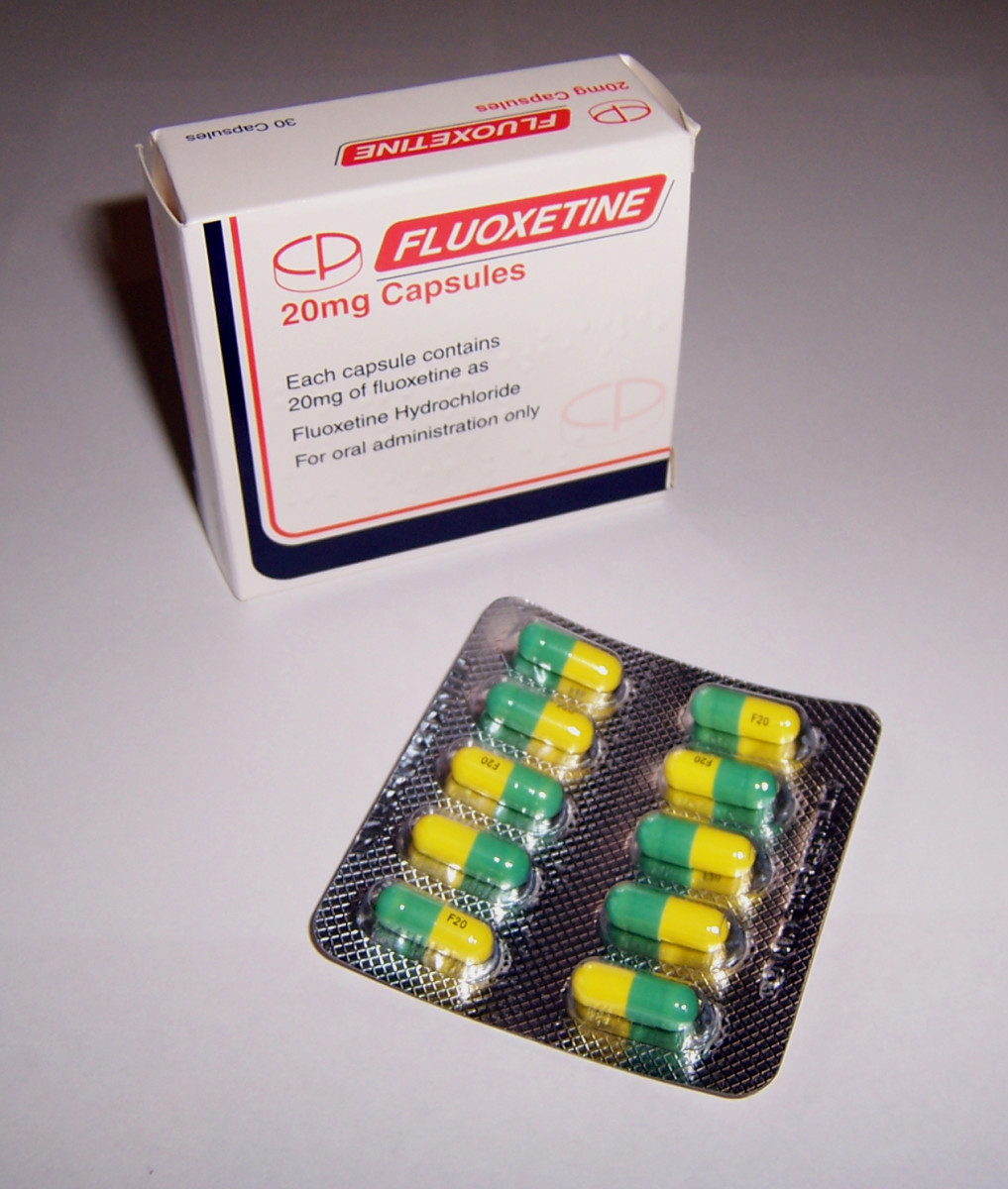Managing Side Effects From Bipolar Medication

Manage your side effects
Having been diagnosed with Bipolar Disorder, I don't know which is worse, mania or depression. Not to mention the side effects from some of the tricky combination of bipolar medications. Trying to explain these side effects to your psychiatrist can be a daunting task. I on many occasion want to quit taking the medications because they make me feel terrible and I hate feeling terrible all the time. But if I stop taking all my medications I risk having episodes that run the risk of being very dangerous.
I have gained weight from medications that seem impossible to shed. It is like there is a built in secret ingredient that interferes with your metabolism so you cannot lose weight on bipolar medications. It is not my number one annoyance, but it sure isn't my favorite. Feeling dizzy and off balance bother me much more. I sometimes feel like a freak. And often wonder if I look like one as well. So in essence I find excuses not to take the medication.
There is not a whole lot you can do to make side affects go completely away. It is possible for you to learn how to work with side effects that are not life threatening, and hope eventually the lesser ones will subside a bit, if not altogether. I always sound off to my doctor about the side affects I am having, just so he knows I am having them and dealing with them as best I can. He then can order some blood tests just to make sure it is the medication and not something else. He may prescribe another medication, unfortunately with bipolar meds it is often a process of trying one after another.
If you are just starting out, and are new to taking meds, ask your doctor what the medication is for and what to expect from it. When I have med changes I usually get print-outs and a sheet to sign that I understand the medication I am being prescribed. I make it a point to find out how the medication is going to effect me, if at all. Your doctor should give you the insight you need, but you must ask for it. Or you may be wandering around in the dark. Your pharmacist can guide you as well.
Usually your doctor will titrate your medications up slowly. So your body will get used to the medication gradually. If you are not comfortable with high doses , titrating is an excellent way to start any new medication. If for example you get sick right from the get go, you might not be able to tolerate the medication at all. Usually your doctor will expect you to give a new medication a little time, with the hopes that the side effects will vanish as your body gets use to the new drug. I found this to be the best way to avoid major side effects. Build up slowly.

Lessons Learned
One huge thing I have learned about medications is the times I take them. If you are on something like say Seroquel, and it makes you sleepy. The best time to take it, would be at bedtime. Unless you like being a zombie all day long. Find out how your body reacts and follow through with when the best times are to take your medications. Some bipolar medications make you restless at night, so you definitely do not want to take them at bedtime. Your doctor should want to work with you on this. It is crucial you have a set schedule to take your meds. Otherwise you are a medicated mess. Knowing when to take your meds can be one sure way of battling the side effects.
It is also important you let your doctor know if you think you are taking to much. Your doctor may reduce the dose you are taking. That may take care of some of the side effects you are experiencing. But may also may trigger an episode because you do not have enough medication in your body. So it is something to talk over with your doctor. On some occasions your doctor may prescribe something to counteract the side effects you are having. I personally do not like this route. It just adds one more medication I do not want to take. So I shoot for less or making a change. But you have to do what works best for you.
Many medications have a tendency to give you dry mouth, or make you so thirsty enough to strap a water bottle to your waist. Drugs like Lithium and Depakote are popular for this side effect. Carrying a bottle of water with you at all times will help you with this. I have forgotten my water on occasion and ended up trying to carry on a conversation while my tongue was bone dry and my lips were sticking together. I know others who like chewing gum or sugar-free candy. But I do not like either of those options, but go for what makes you feel better. My dentist recommended a mouthwash specifically targeting dry mouth. That is something you can look for as well.
Always have your doctor's number where you can find it. If for some reason you are experiencing some really bad side effects your first line of defense should be making a call. The doctor or staff will direct you, if it is something serious you should go to the nearest emergency room. Better safe than sorry. I have experienced Lithium toxicity on more than one occasion. And had to go to the emergency room. Any side effect you believe is interfering with your life, is serious. Things like fainting, severe heart palpitations, seizures, suicidal thinking are more serious side effects that should be dealt with immediately
the Bipolar Experience
- Tips On How To Cope Living With Bipolar Disorder
Coping skills on how to deal with Bipolar Disorder also known as Manic depression can help you deal better with an often chaotic disorder. Use these tips to help you manage your bipolar. - Bipolar-Normal Is Just A Point Of View
A brief despriction of how others sometimes veiw bipolar disorder and mental illness, being normal is only one perception. With knowledge and understanding those with mental illness can thrive. - My Experience With Lithium For Bipolar Disorder
I wrote this little piece awhile back when I was giving the wonder drug Lithium another try. As it turns out it is a great drug for bipolar, but the other side is well different.
Don't Suffer
There is no reason you should have to suffer through debilitating side effects. Minor ones as I've stated are easier to work through or around and may vanish with time. It is the ones that interfere dramatically that you have to watch out for. If you should decide medication is the right treatment plan for you, remember you can manage your side effects effectively and still maintain your bipolar with dignity.
Not all side effects are manageable. Some can be very serious. These are the ones that should be reported immediately. I am in no way suggesting you should suffer with side effects. I am giving you options that you can live with if you should decide to stick with a bipolar medication that has uncomfortable side effects. Only you can decide if a medication is not right for you. Again if you have serious side effects from any medication it should be reported immediately.
© 2011 Boo McCourt








